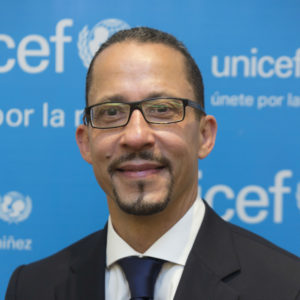Statement by UNICEF The Gambia on the Day of the African Child 2021

Banjul, 16 June 2021
Historically, the Day of the African Child has been an occasion to reflect on the struggles of children on the continent but also celebrate progress to fulfil their rights and welfare. Founded on the struggles of black African children to access education in apartheid-era South Africa and the killingof hundreds of children and youth in the 1976 Soweto Uprising, the day presents an opportunity to assess the situation of children and recommit ourselves to their development.
Across the continent, children are raising their voices demanding their rights, including the right to birth registration and access to quality education. But while some are being heard, many children remain without a voice and a platform to speak up, in fact, they are being left without a seat on the train of development. These children are not only out of school and their births not registered in the national registration system, but most of them are also engaged in activities detrimental to their development, such as child labour and unsafe migration.
In The Gambia, considerable progress has been made in improving access to education, especially for girls. Between 2010 and 2018, the number of primary school-age children in school has risen from 63% to 78%, whilst the percentage of out-of-school primary school-age girls has dropped to 16%. But the gaps and challenges are conspicuous – fewer children are now completing their education than a decade ago, and more than 20% of primary school-age boys are out of school. Behind these statistics, there is a child with rights and a future. We cannot ignore them.
Birth registration, the official recognition of the existence of a child, is a fundamental right and the first legal proof of identity. Yet in The Gambia, only 32% of children under 5 years have actual birth certificates. Without a birth certificate, children are “invisible” to their government, putting them at risk of missing out on essential services such as healthcare and education, and the important protection they need when they come in contact with the justice system.
As we mark this year’s Day of the African Child on the theme, “30 years after the adoption of the Charter: accelerate the implementation of Agenda 2040 for an Africa fit for children”, we also celebrate the first anniversary of the joint UNICEF-African Union birth registration campaign dubbed “No Name Campaign’’. This campaign aims to accelerate birth registration and represents a great example of how countries are accelerating the implementation of the Agenda 2040 for an Africa Fit for Children.
On the Day of the African Child, we urge all stakeholders to build on the progress registered for children and accelerate national efforts to ensure every child is in school and learning, and every birth is registered according to law by workingtogether and increasing investments in quality education, and health and social services for children.


Comments are closed.